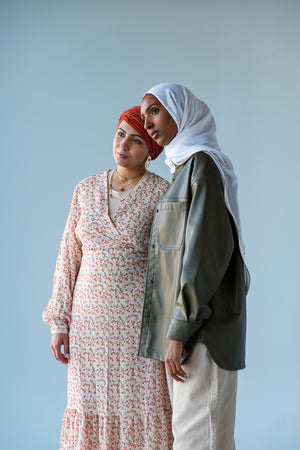
Signs on the Earth: Islam, Modernity and the Climate Crisis
Original price
£12.99
-
Original price
£12.99
Original price
£12.99
£12.99
-
£12.99
Current price
£12.99
Today more than half the world’s population live in cities. Our increasingly urban lives have ensured our almost total disconnection from the natural world to the extent that it is not uncommon to meet children who believe that milk originates in super market shelves. It is as well to be conscious of this as much is left out in their education both religious and secular to the extent that we are continuing to cause irreparable harm to the Earth. Muslims are not an exception to this having themselves adopted urban life styles and modern modes of living quite oblivious to where this is all going. Taking children to the zoo or visiting national parks are more in the nature of recreational activities that re enforce the idea of otherness. The educational element remain lamentably superficial and the spiritual is nowhere to be seen.
In the Islamic order care for the natural world expresses itself in every aspect of personal behaviour. The guidance for this comes from the Qur’an and Prophet Muhammad’s teachings (Sunnah). It is integral to life, an expression of existence in submission to the will of the Creator in harmony with the cosmic pattern. There is a code of conduct that governs interpersonal behaviour and an individual’s rights and responsibilities within a community; it also deals with an individual’s behaviour towards other sentient beings and the rest of the natural world. As Muslim interaction with the environment evolved, it manifested itself in a range of rules and institutions, embodying a truly holistic expression of life. It took into consideration the prohibition of waste, being abstemious, being generous, being considerate, being moderate, unselfish, caring and sharing. The qualities of love, humility, trust and justice remained preeminent. Over the centuries, these values have been elaborated upon by a succession of mystics, scholars, jurists and teachers responding to real problems experienced by the growing community of Muslims in various parts of the world.
However, this Islamic mode of expression is now severely attenuated, having been swept aside by the forces of history, like the other older traditions, into a domain which treats the natural world exclusively as an exploitable resource. As what we now understand by modernity advanced, as the secular ethic progressively seeped into the Muslim psyche and as industrial development, economic indicators and consumerism became the governing parameters of society, there has been a corresponding erosion of the Muslim perception of the holistic and a withering of its understanding of the sacred nexus between the human community and the rest of the natural order:[i]
In the Islamic order care for the natural world expresses itself in every aspect of personal behaviour. The guidance for this comes from the Qur’an and Prophet Muhammad’s teachings (Sunnah). It is integral to life, an expression of existence in submission to the will of the Creator in harmony with the cosmic pattern. There is a code of conduct that governs interpersonal behaviour and an individual’s rights and responsibilities within a community; it also deals with an individual’s behaviour towards other sentient beings and the rest of the natural world. As Muslim interaction with the environment evolved, it manifested itself in a range of rules and institutions, embodying a truly holistic expression of life. It took into consideration the prohibition of waste, being abstemious, being generous, being considerate, being moderate, unselfish, caring and sharing. The qualities of love, humility, trust and justice remained preeminent. Over the centuries, these values have been elaborated upon by a succession of mystics, scholars, jurists and teachers responding to real problems experienced by the growing community of Muslims in various parts of the world.
However, this Islamic mode of expression is now severely attenuated, having been swept aside by the forces of history, like the other older traditions, into a domain which treats the natural world exclusively as an exploitable resource. As what we now understand by modernity advanced, as the secular ethic progressively seeped into the Muslim psyche and as industrial development, economic indicators and consumerism became the governing parameters of society, there has been a corresponding erosion of the Muslim perception of the holistic and a withering of its understanding of the sacred nexus between the human community and the rest of the natural order:[i]




